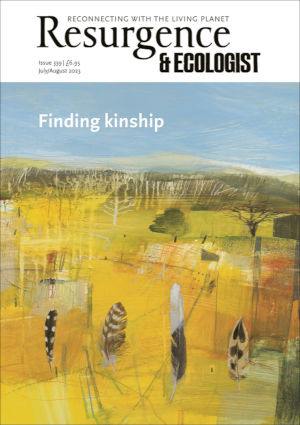I have a shelf of books that I consider the classics, the ‘go-tos’, the volumes that I refer to again and again. Kate Raworth’s Doughnut Economics of course has a place, as does Tim Jackson’s Prosperity Without Growth. Yet one of the most consulted books on this shelf is a 13-year-old science book, which is astonishing really, given the speed of development in so many areas of scientific discovery. The book is Cordelia Fine’s Delusions of Gender: How Our Minds, Society, and Neurosexism Create Difference.
As editor of The Guardian Weekly, I was recommending it to readers when it first came out, and I feel that I still have to. You don’t have to look far to see why. A headline in The Daily Mail for 3 April 2023 reads: ‘Doctor: This is the “wild” difference between male and female brains – and why women are healthier, better at decisions and less likely to go to jail’. Or a supposed expert website, Healthline.com, from 7 April 2023: ‘Brain Scans Reveal the Different Reasons Men and Women Gain Weight’.
The delusions that Fine so clearly demolished in 2010 – that we understood the results of physical measurements of our brains, that samples from small, unrepresentative groups of people could be taken as determinative, and that there are ‘male brains’ and ‘female brains’ – are still running rampant. She wrote then: “Researching popular claims about the difference between male and female brains is an activity that is not particularly good for the blood pressure.” That hasn’t changed. Nor has the claim of many citing such ‘evidence’ that they are uncovering some kind of hidden secret, a conspiracy to deny a ‘truth’. Fine said: “Neurosexism is so popular, so mainstream, that … it is difficult to argue that our attitude towards the supposedly unmentionable idea of innate sex differences is usually anything other than casual and forgiving.”
It’s hard to kill stereotypes with evidence, as is reinforced by a book that’s almost a decade older, Colette Dowling’s The Frailty Myth: Redefining the Physical Potential of Women and Girls, which sits beside Fine’s on my shelf. Its similarly comprehensive demolition job of much pop ‘science’ is also still badly needed. Despite the historical evidence from societies ranging from Hong Kong to Finland, in both of which women were traditionally labourers on building sites, claims that women cannot do hard physical work continue to be heard regularly.
Neat research from 2017, which showed that prehistoric women’s arms were stronger than those of elite athletes today, and 30% stronger than the average woman’s, helped reinforce The Frailty Myth’s conclusion that society is discouraging half its people from developing to their full physical potential.
Debunking scientific nonsense is clearly essential, but not enough. What, then, offers an alternative?
Very different in tone from Fine’s work, and definitely on the serious academic side, feminist theorist Samantha Frost’s 2016 book Biocultural Creatures: Toward a New Theory of the Human offers one way forward, acknowledging the ways in which the physical and the social interact. But we also now understand, as Fine could not have understood in 2010, that we are not an individual species, but a holobiont, a complex ecology of tens of thousands of species, our microbiomes not just supporting our existence, but essential to it. There’s not yet, I think, a book that sets out in accessible form just how differently that could reshape our understanding of ourselves.
Maybe that rethinking will never happen in the Daily Mail, but we already have plenty of evidence that could be used in other sources that at least make more of a pretence of being based on scientific fact.
Delusions of Gender: How Our Minds, Society, and Neurosexism Create Difference by Cordelia Fine. W.W. Norton & Company, 2010. ISBN: 9780393068382






